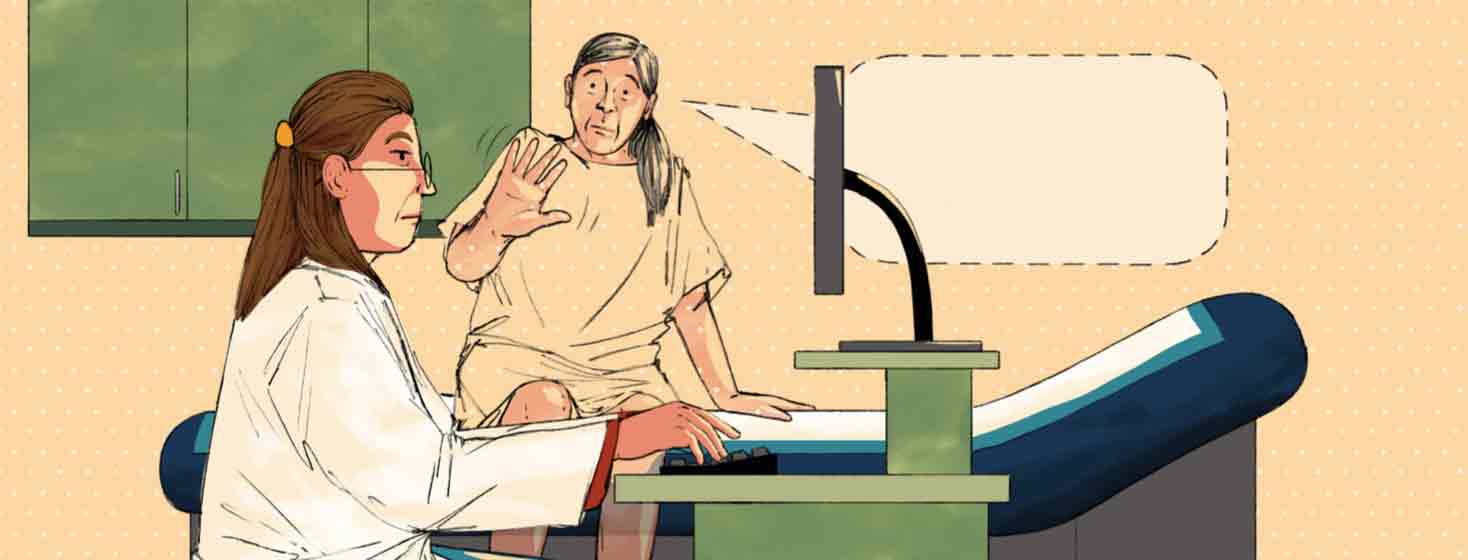Diagnosis, Part 4
We all want to believe that our oncologists are just a few steps away from Godliness. And that they spend the majority of their mental energy thinking about our specific cases. We often neglect the scores of other patients who depend on them. Oncology patients who are suffering and dying, or the hypochondriacs who are bothering them constantly. It's a wonder how our doctors can compartmentalize that enough to walk into our exam rooms with smiles on their faces, let alone do our paperwork, figure out clinical trials, etc.
Advocating for yourself
However, tragic and psychosomatic patients are not good reasons for your symptoms to go unwatched, although they explain how it can happen. The truth is, getting time in our oncologist's headspace is quite tricky but also extremely valuable. So, it is up to us, the patients, to understand our symptoms enough to stand out from the rest of the daily noise.
That is why I decided to bear some of my most painful memories to you, the AdvancedBreastCancer.net readers. I'm hoping that my struggles can teach you what happens when you don't stand up for yourself from the beginning.
Knowing when to push back
Primarily, I wish I had known that if you are a double mastectomy patient like me, many hospitals are phasing out routine blood or imaging tests. According to the American Cancer Society, "they haven't been shown to help women who've been treated for breast cancer live longer."1 I was unaware the hospital I went to had adopted this treatment philosophy. Understanding this earlier would have made me realize that the source of my pain was not going to get discovered by accident, as routine scanning was not standard protocol. So, if I felt a scan was necessary, I had to speak up and make them understand that it was. Unfortunately, I did not know this until long after I was well into my treatment.
The way to know if your hospital has adopted this philosophy is simple: you will not be getting the routine scans you would expect after a cancer diagnosis and major surgery. In that case, if you feel something is wrong, speak up and tell your doctor. Have faith in yourself and push back when they give you what I like to call a "non-diagnosis" or tell you your pain is something non-consequential, which they might.
Doing the research ahead of time
I talked to one woman who compared these interactions to buying a car. "You have to come in with all your research lined up and be ready to haggle." Another said to leave the interaction at "can you mark this down in my chart, that I asked for a scan and you didn't want to give me one?" Then see what the doctor does.
Being assertive vs. aggressive
Although, remember there is a fine line between pushing back and being aggressive: don't scare your doctor, don't be "that patient," that won't get you very far. They understand that you are fighting for your life, but you don't need to fight with them. Changing their minds may take more than a visit and some emails. So finesse it, don't expect to get what you want right away, but keep your eyes on the prize. Be the squeaky wheel.
Knowing your rights
Please don't do what I did. When my chest first started hurting, I told my doctor, and she assured me there was no way it could be my cancer returning. So I thought I was golden, and I went on and lived my life for the following year.
In hindsight, I should have done a five-minute Google search. I would have found numerous articles listing the possible breast cancer recurrence symptoms for women with a history of breast cancer. And I would have known that I had every right to ask for a follow-up scan at that point. That's why I am listing them below for you.
The most likely signs of metastatic recurrence:2
- Persistent and worsening pain, such as the chest, back or hip pain
- Persistent cough
- Difficulty breathing
- Loss of appetite
- Weight loss without trying
- Severe headaches
- Seizures
Takeaway: Listen to your body
The biggest takeaway is that you have to listen to your body. I am just a writer with cancer; please don't do anything solely on my advice. But if something is making you feel so uneasy that you are losing sleep or valuable, healthy headspace over it, you deserve to get it checked out. You may need to pull out Dr. Google; what is there to be afraid of anymore? You know what it's going to say.
Then with a few articles backing you up, send that nicely worded email to your doctor asking for a diagnostic test. Even if all your follow-up tests turn up negative, you'll have the best diagnosis you can ask for: peace of mind.
Have you had an experience where you needed to push back with your oncologist?
Editor's Note: We are extremely saddened to say that on September 6, 2023, Vicki Thompson passed away. Vicki's advocacy efforts and writing continue to reach many. She will be deeply missed.

Join the conversation